
ADHD or Active Child?
Stephen Guffanti, MD | ADHD, dyslexic & ODD
Here to bring peace to the hectic life of moms with active kids or active daydreamers
- Planning a Long Journey with Your Active Child
Planning a Long Journey with Your Active Child
As summer beckons, most people with be looking forward to taking a vacation and enjoying some well-earned rest, but for families with a very active child, the summer vacation can be a time of dread at the thought of tediously long car rides, stuck behind endless traffic lights or having to put up with airport lounges and tiring flights. None of these conditions are particularly well tolerated for an active child and many thrive better with stimulation and routine – both of which are disrupted by travelling. But before you give up and decide not to go away until your child is 18, there are things you can do to accommodate him or her more effectively while you still have your family break.
1. If you have an older child, you can get him or her involved in the planning stages of the holiday, so he or she stays enthusiastic and interested. If possible, have your child choose where you go, what type of car you will hire, where you will stop along the journey and the type of activities you will do. If your child is able to plan the holiday, it will be harder to become bored and distracted. Some older children with ‘hyperactive’ personality traits find guided tours an easier alternative to planning the journey themselves as everything is set out for them, the days are packed with sight-seeing and other activities and during long journeys trained tour guides can give a detailed history of the area as well as telling fascinating facts and bringing light hearted humor into it. If your child is the ‘dreamy’ variety, you could plan a lower key vacation, for instance, camping at a National Park so he or she can wander in the woods or going to a quiet coastal area where they can inhale the benefits of the sea air and the tranquillity.
2. Check your child’s diet before you go. Food can be a culprit of troubling hyperactivity symptoms in a bright and active child. The diet connection has only just begun to receive the consideration it deserves from the medical profession. Children today are faced with sugar-laced food, chemical additives and food dyes that weren’t available a few decades ago. Dr. Lidy Pelsser from the ADHD Research Centre in the Netherlands published some research in The Lancet that showed that 64% of children diagnosed with ADHD were actually suffering from food allergies. Dr. Pelsser determined this by putting children on a very varied diet and then gradually decreasing the types of foods given to identify which foods may be causing a problem. Once the offending food items were removed, the majority of the children ceased to have any behavioral symptoms. The temper tantrums went away, they could concentrate better and their memory improved after eliminating the culprit. The NPR news website reported that Pelsser said “ADHD, it’s just a couple of symptoms — it’s not a disease…The way we think about — and treat — these behaviors is wrong. There is a paradigm shift needed. If a child is diagnosed ADHD, we should say, ‘OK, we have got those symptoms, now let’s start looking for a cause.’ ” If your child is one of those whose hyperactivity results from a food allergy, trying an elimination diet may resolve the problematic symptoms before you go away. Don’t let children snack on junk foods during the journey and remember if you dine out at restaurants that you check their meals are free of the allergic items. Money.co.uk says that you should always explain to the locals exactly what foods your child is sensitive to and if you’re going self-catering, you should also look into what goes into the sauces, oils and flours you use for cooking and check drinks ingredients.
3. Avoid sodas too! When going on holiday it is tempting to over-indulge in ‘bad’ foods and drink – like soda and ice cream – just to treat yourself – and the kids will be no exception. However, The American Journal of Public Health says high consumption of sugar containing soft drinks causes mental health problems, hyperactivity and conduct problems in teenagers. If your teenager has aspects of an active, non-conformist personality and you add in high sugar, you may see an amplification of those features. To avoid ‘Soap Opera’ style arguments and a holiday from hell, stick to water.
4. Shockingly, some parents are drugging their children on airplane flights to cope with their crying. If you have an active toddler or young child, it could be almost impossible for them to sit still on long flights and there’s nothing worse than trying to comfort an inconsolable child while other passengers burn their disapproving glances into you. You shouldn’t, however, be tempted to resort to sedative antihistamines because aside from the fact that a medication is being given for no medical purpose, it can also have the opposite effect and give your child a ‘high’. Having a hyperactive freak out at 30,000 feet is no laughing matter. Instead, bring toys in your hand luggage and give them out in stages so that you’ve got something new to show your child at various stages throughout the flight. If your child has a familiar comfort blanket or teddy bear that helps keep him or her calm, be sure not to forget it. Baby travel sleeping bags are good because you can use them at home in the baby’s crib, in the car seat and on a flight. The familiarity of it may help your baby to feel as if he or she is at home so they sleep better. Older Children should bring hand-held DVD players, game consoles or laptops so they can do things they enjoy while waiting for touch-down. If your finances allow, you should consider travelling in first class so that you aren’t crammed in like sardines and your child has more space to move around.
5. If you are vacationing to see family or friends, ADDitude magazine suggest booking a hotel to stay in – or you could camp out under the stars. This is to give your children a break from the hustle and bustle during the day, to separate the holiday into more manageable chunks and to give your children their own space that they can just chill out in at the end of each day. If you explain the reason why to your guests, they shouldn’t be offended.
Sources:
ADHD or Active Child? Accessed May 22, 2014, http://www.adhdoractivechild.com/
Avoid Holiday Havoc: Help for ADHD Children, ADDitude, accessed May 22, 2014, http://www.additudemag.com/adhd/article/900.html
Pelsser LM, Frankena K, Toorman J, et al. Effects of a restricted elimination diet on the behaviour of children with attention-deficit hyperactivity disorder (INCA study): a randomised controlled trial. Lancet 2011;377: 494-503. http://www.adhdenvoeding.nl/cms/wp-content/uploads/2011/02/Pelsser-The-Lancet-2011-Publication-INCA-study.pdf
10 Things to Do Before You Travel, Money.co.uk, accessed May 22 2014, http://www.money.co.uk/article/1010320-allergy-10-things-to-do-before-you-travel-outside-the-uk.htm
Study: Diet May Help ADHD Kids More Than Drugs, NPR, accessed May 22, 2014, http://www.npr.org/2011/03/12/134456594/study-diet-may-help-adhd-kids-more-than-drugs
Moon and Back Travel Baby Sleeping Bag, The Dream Bag USA, accessed May 22, 2014, http://www.thedreambag.com/product_info.php?cPath=19_22&products_id=340
Fenigold Association of the United States, accessed May 22, 2014, https://www.feingold.org/
Lars Lien, MD, MSc, Nanna Lien, PhD, Sonja Heyerdahl, PhD, Magne Thoresen, PhD, and Espen Bjertness, PhD, Consumption of Soft Drinks and Hyperactivity, Mental Distress, and Conduct Problems Among Adolescents in Oslo, Norway, Am J Public Health. 2006 October; 96(10): 1815–1820. doi: 10.2105/AJPH.2004.059477
Authored by Jenni Rose
23 May 2014, 2:36 pm - School System pushes ADHD Label
How the School System is Labeling Children with ADHD
The number of American school children who are diagnosed with ADHD is increasing every year at a rapid rate, leading some medical professionals and even parents to question whether children are being misdiagnosed with the behavioral disorder when they are simply displaying normal child behavior. By 2011, 6.4 million children between 4-17 were diagnosed with ADHD, amounting to 11% of children in that age group. This figure has risen from 7.8% in 2003 and 9.5% in 2007. Boys are much more likely than girls to be diagnosed with ADHD. Nearly one in five school boys have received a medical diagnosis for ADHD. Overall, the number of children thought to have ADHD has increased by 41% in the last decade.
Medicated Childhood
Now, one in 13 school children are currently taking psychotropic medication, either for ADHD or another behavioral or emotional disorder. The drug Ritalin is a common choice for doctors looking to treat hyperactivity in children. Structurally, it is similar to cocaine, its effects are also very similar and it increases dopamine levels in the brain – the pleasure receptors in the brain that are implicated in addiction. Because of its stimulating properties, some children who take Ritalin will also have to take sedatives so they are able to go to sleep at night. Like cocaine, Ritalin speeds up metabolism and reduces appetite, causing weight loss in some people who take it. The fictional medical TV drama, ‘House’ referred to Ritalin as ‘PG rated cocaine’, but while the program is made up, the concern is real. It is known that a diagnosis of hyperactivity in childhood increases the chance that the person will later abuse substances such as alcohol, cigarettes or drugs. Although this is thought to be because people with hyperactivity are more impulsive, it may be because they become used to the effects of stimulating psychotropics and seek out the same effects in other drugs when they reach adulthood.
Alarmingly, problems of drug addiction don’t always start in adulthood. Kids who are prescribed medications may begin misusing them while they are still in school and it is becoming more common for young people to deal in prescription drugs. Even those with no ADHD diagnosis or other illness may trade pills with other children or teens in order to ‘get high’ or to help them stay up late into the night to complete their studies. As Ritalin increases concentration it is sometimes misused by students as an educational aid. Rates of drug abuse are similar to the diagnosis rates of ADHD, with 11.4% of 12-25 year olds using prescription medications for non-medical reasons. More than two and a half percent of high school seniors have abused Ritalin in the last year and rates are much higher for other behavioral medications like Vicodin and Adderall.
Is ADHD Misdiagnosed?
But why are so many American children given prescription medications? Are the nation’s children really unhealthy and unbalanced or is there something else going on? Psychiatrist Peter Breggin thinks so. Mr Breggin says that the symptoms of ADHD such as fidgeting, talking excessively, leaving their seat in the classroom, impulsiveness, easy to distract, day-dreamy or forgetful are all entirely normal personality traits of some children, particularly young children. If those personality traits become disruptive or harmful there is usually always a non-psychiatric reason such as a physical illness, tiredness, poor parenting or poor teaching, boredom or distress but doctors are increasingly giving children a label of ADHD and placed on medications for symptoms or personality patterns that are mild. However, there are no biological markers for ADHD and no tests that identify any physical problem. Mr Breggin asserts that the symptoms listed in the DSM-5 are merely a list of behaviors present in a classroom setting and are not usually indicative of any psychological disorder.
Poor Teaching Encourages the Drugging of Children
Another sign that children are being misdiagnosed is that the youngest children in the class are more likely to be diagnosed with ADHD than their older classmates. One of the reasons for this is that the ‘disruptive’ children are five years old, rather than six, and that academic education begins far too early in a child’s life. During those formative years, a child learns through play and through his primary attachment figures – normally his parents. If a child is away from his primary attachment figures for long periods of time, unable to play freely, he may rebel through distress with combative behavior. Research shows that in countries where children start school at age seven, their academic success and exam pass rates are higher.
The behavior of infants may only be perceived to be combative, though, as fidgeting, inability to sit for long periods and a lack of focus are often the normal attributes of a five year old.
Around one million five year olds are misdiagnosed with ADHD every year because they display typical five year old behavior and don’t yet know how to conform in a classroom environment, or they are simply bored by unstimulating lessons. As the school system teaches every child of the same age at the same level, the ‘one size fits all’ policy may not work for gifted children, who could find the classroom tedious or resent having to perform a task they already know. The personalities of those who are very bright often have traits that are mistaken for defiance or ADHD, such as skepticism of authority, boredom with routine tasks, reluctance to practice things already learned and a day-dreaming, creative mind. These are all aspects of a highly intelligent mind, yet too often such children are falsely labelled with ADHD or another behavior disorder and may never receive the special attention and education they deserve to cultivate their talents and reach their full potential.
The Parent Factor
Dr. Jerome Chapman from Harvard Medical School says that normal childhood behavior is now being seen as an illness. In some cases, experts concur that parents are asking doctors to medicate their children in order to deal with defiant behavior or worsening school grades. Some behaviors may simply be attention-seeking. If the parents aren’t at home often due to full time jobs or they aren’t giving firm enough discipline or boundaries to their children they may act out with increasingly combative behavior. According to Child and Family Social Work, quality of parental caregiving plays a vital role in the aetiology of the condition and good quality parenting can be a treatment for it. Far from being judgmental, it may be society that has allowed this to happen as now it is seen by some to be a taboo to even say ‘no’ to your child. In the midst of fear of unwarranted litigation, it can be challenging to set appropriate guidelines for a child. Low wages and lack of flex-time jobs for parents may mean they have no choice but to try to juggle work with family life. Other causes could also include the child’s over-indulgence in junk foods (food dyes make you hyperactive), vitamin deficiencies or even an undiagnosed medical illness.
Whatever the reasons, there are too many kids on medication and more parents want a drug-free alternative and a different way of communicating with their hyperactive child.
Author Jenni Rose
Sources
ADHD or Active Child? Accessed May 14, 2014, http://www.adhdoractivechild.com/
Nearly one million children in U.S. potentially misdiagnosed with ADHD, study finds, ScienceDaily, accessed May 14, 2014, http://www.sciencedaily.com/releases/2010/08/100817103342.htm
ADHD: Blaming Parents and Teachers, ChildMind Institute, accessed May 14, 2014, http://www.childmind.org/en/press/brainstorm/adhd-blaming-parents-teachers
A Misdiagnosis, Anywhere, The New York Times (October 13, 2011), accessed May 14, 2014, http://www.nytimes.com/roomfordebate/2011/10/12/are-americans-more-prone-to-adhd/adhd-is-a-misdiagnosis
Attention-Deficit / Hyperactivity Disorder (ADHD), Centers for Disease Control and Prevention (CDC), accessed May 14, 2014, http://www.cdc.gov/ncbddd/adhd/data.html
Report: 1 in 13 U.S. schoolkids takes psych meds, News Day, accessed May 14, 2014, http://www.newsday.com/news/health/the-daily-apple-1.4760551/report-1-in-13-u-s-schoolkids-takes-psych-meds-1.7812933
Charach A, Yeung E, Climans T, Lillie E, Childhood attention-deficit/hyperactivity disorder and future substance use disorders: comparative meta-analyses. J Am Acad Child Adolesc Psychiatry. 2011 Jan;50(1):9-21, accessed May 14, 2014, doi: 10.1016/j.jaac.2010.09.019.
Misdiagnosis: The Recent Trend in Thinking about Gifted Children with ADHD, accessed May 14, 2014, http://www.giftedchildren.org.nz/apex/pdfs15/Edwards%20K.pdf
Prescription Drug Abuse: Young People at Risk, National Institute on Drug Abuse, accessed May 14, 2014, http://www.drugabuse.gov/related-topics/trends-statistics/infographics/prescription-drug-abuse-young-people-risk
Private Drug Detox and Withdrawal Programs, Rehabs, accessed May 14, 2014, http://luxury.rehabs.com/drug-detox/
Is the American School System Damaging Our Kids? Readers Digest, accessed May 14, 2014, http://www.rd.com/advice/parenting/american-school-system-damaging-kids/
K12 International Academy, accessed May 14, 2014, http://www.icademy.com/about/welcome-our-head-school
GVS and Indigo Children, Global Village School, accessed May 14, 2014, http://www.globalvillageschool.org/indigo-children.html
David Howe, ADHD and its comorbidity: an example of gene–environment interaction and its implications for child and family social work, Child & Family Social Work, Volume 15, Issue 3, pages 265–275, August 2010. Accessed May 14, 2014, DOI: 10.1111/j.1365-2206.2009.00666.x
20 May 2014, 1:43 pm - Working With Families Episode 16
After the first month of an ongoing tele-seminar where Dr. Guffanti answers your questions we are seeing the translation from theory to application. This podcast discusses how to get your child to finish his chores without constant reminders? How do you follow your passion when you work for a living.
Not only do you get your questions answered, but you get to ask follow up questions the next week to smooth out the implementation of the changes you make. All this and more is discussed in a long awaited podcast.
This podcast is down loadable here (mp3)
2 March 2012, 5:38 pm - Passion’s Purpose Part 3: Passion’s Pitfalls Episode 15
 Your children’s passion will unfold their destiny if you avoid the three pitfalls and learn to support. The 3 pitfalls to avoid are: don’t feed an addiction, empower rather than enable and let your child attempt the impossible.
Your children’s passion will unfold their destiny if you avoid the three pitfalls and learn to support. The 3 pitfalls to avoid are: don’t feed an addiction, empower rather than enable and let your child attempt the impossible.In essence, encourage your family to follow their joy and confront their fear. It is passion’s path, not its destiny, that brings most of the value in following your passion.
Part 3 is down loadable here (mp3)
(To learn more about following your passion please click on the Products tab above and get my book, The Purpose of Passion.)
8 January 2012, 1:18 pm - Passion’s Purpose Part 2: Preparing Your Child to Thrive Episode 14
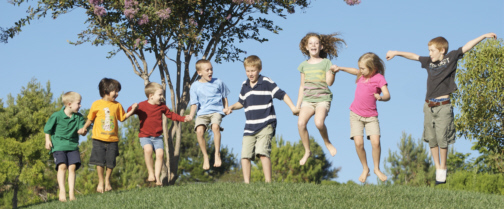 In a country where only one out of three children can read their textbooks, where anxiety, depression and suicide are consuming more and more of our teenagers where graduation doesn’t seem to lead to a job how do you prepare your child to thrive?
In a country where only one out of three children can read their textbooks, where anxiety, depression and suicide are consuming more and more of our teenagers where graduation doesn’t seem to lead to a job how do you prepare your child to thrive?Your children’s passion will draw them to learn everything they need to learn. On Passion’s Path your child gets an extraordinary education that you can’t keep up with, but can facilitate. There are character issues that we all face, but when your children are pursuing their passion they confront them sooner and with intense interest in a positive resolution. When it is time for your children to be on their own they will have the confidence, the knowledge and the direction to make that step.
Listen and learn the 3 things parents can do to bring this life thriving plan into their home. And also the 3 pitfalls to avoid.
Part 2 is down loadable here (mp3)
(If this issue strikes a chord with you please click on the Products tab above and get my book, The Purpose of Passion.)
15 December 2011, 3:51 pm - Passion’s Purpose Part 1 Episode 13
Did you ever wish for an operator’s manual on raising your children?

Born with a passion
Sorry, its not available, but learning to feed your passion and your child’s passion is the next best thing. This podcast is the first in a multi-part series that discusses the purpose of passion in our life from helping us handle our stress, to bringing us through the hard times and the fulfilling joy that a passion filled life brings.
Part 1 is down loadable here (mp3)
7 December 2011, 8:18 pm - Girls and the ADHD Label Part 3 Episode 12
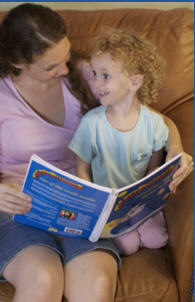 Some girls have a passion for their friends and risk losing their identity to please others. Developing firm internal boundaries is your best defense against this happening. Basing your boundaries on love, truth, freedom and consequences sets a solid foundation that is easy to explain.
Some girls have a passion for their friends and risk losing their identity to please others. Developing firm internal boundaries is your best defense against this happening. Basing your boundaries on love, truth, freedom and consequences sets a solid foundation that is easy to explain.Within these boundaries we will discuss the challenges for your daughter of working with her friends without giving in or giving up. And the opportunities for parents to help their little girl navigate the pressures and anxieties that threaten her during the journey to become a mature woman.
To download this episode click here (mp3)
12 November 2011, 9:41 pm - Girls and the ADHD Label – Episode 11

Passion creates focus
Dr. Martin Stein, a pediatrician at UCSD, notes that girls are likely to be diagnosed with ADD later than boys, some as early as third or fourth grade, or as late as junior high.
Here’s my take on what happens: year by year, girls value peer relationships more. So, many females gradually place the teacher on ignore while they wait to do something interesting with their friends. Those caught ignoring their teachers are labeled ADD, a misdiagnosis because the definition of ADD includes that the symptoms are present before the age of 7 and for most it comes later.
This episode discusses:
- How to avoid your daughter putting you on ignore as she moves into her teen years.
- The three most common mistakes that parents make when supporting their children
To download this episode click here
11 September 2011, 4:31 am - Girls: The Pressures and the Protections
In an effort to help the ADHD parents I have posted a survey. This podcast is the answer to some of the questions posted there. Moms want help with their girls.
In this episode you will learn:
- The incredible pressure our society places on girls
- The mounting anxiety and depression it creates
- How you can protect your daughters
Download Episode 10 here (mp3)
You will have to wait for episode 11 to see how this plays with ADHD
13 July 2011, 4:33 am - ADHD Fathers and their Family – Episode 9
Father’s Day Special – Getting Dad involved in the family

ADHD dad and his family
In an effort to help the ADHD parents Dr. Guffanti has posted a survey. This podcast is the answer to some of the questions posted there. This mom asks, “What can I do to help my husband who is ADD (not H) pay attention to his own kids and family and learn to plan ahead (even for just a day or two)?”
In this episode you will learn about family fundamentals:
- Setting the right priorities
- Evaluating eveyone’s learning and behavioral style
- Understanding the gender motivation differences
- Giving her husband the positive feedback he needs
Download Episode 9 here (mp3)
19 June 2011, 11:53 am - Motivating the Oppositional Child Part 2 Episode 8
 The essential ingredient for those children who often blame others for their misbehavior is for the parents to decide “Whose problem is it?”
The essential ingredient for those children who often blame others for their misbehavior is for the parents to decide “Whose problem is it?”When parents step in and solve problemss for their child they communicate, “You are not capable of achieving this.” This is not very helpful to girls—and it’s devastating for boys.
Which leads us to discipline. The four rules of discipline are:
- Be fun to be with and require your child to be fun to be with – no whining
- Avoid disciplining in anger (If you have to, put yourself in time out before you discipline.)
- Focus on what the child can be—the greatness they have within them
- Don’t ever take away their passion as punishment for any wrong decision
31 May 2011, 11:00 am - More Episodes? Get the App
Your feedback is valuable to us. Should you encounter any bugs, glitches, lack of functionality or other problems, please email us on [email protected] or join Moon.FM Telegram Group where you can talk directly to the dev team who are happy to answer any queries.
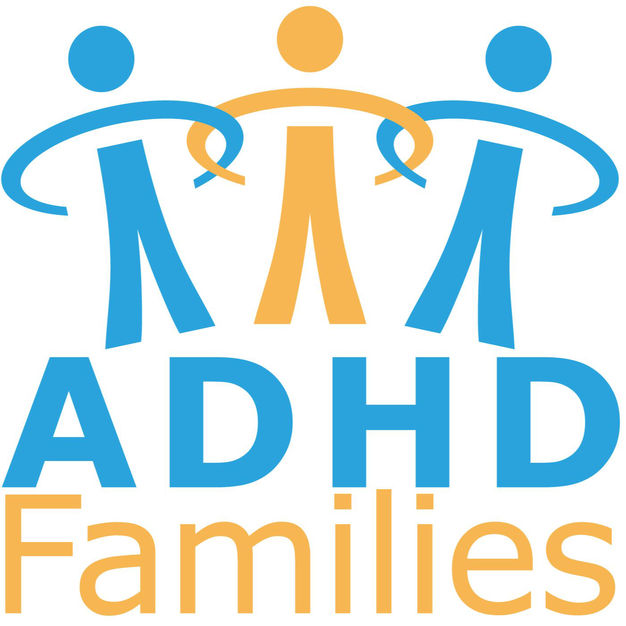 Inside ADHD
Inside ADHD
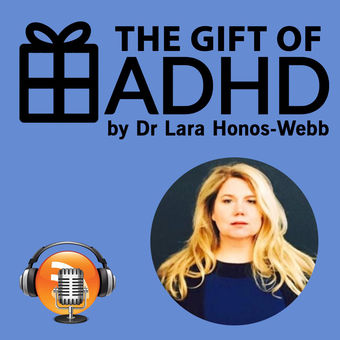 Lara's posts
Lara's posts
 Robbin Milne painter’s audio blog about visual art and multi media inspiration.
Robbin Milne painter’s audio blog about visual art and multi media inspiration.
 From ADHD to Amaze-Ability™: Children and Adults with ADHD | Total Lifestyle Optimization | Champion Your ADHD™
From ADHD to Amaze-Ability™: Children and Adults with ADHD | Total Lifestyle Optimization | Champion Your ADHD™
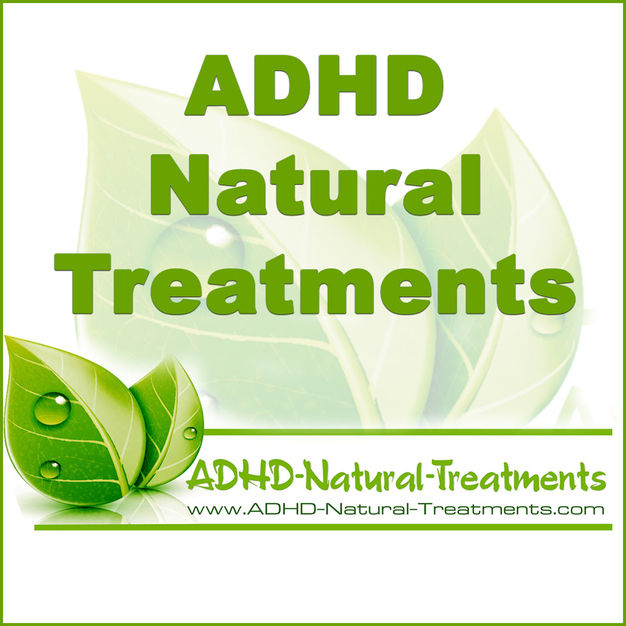 ADHD Natural Treatments
ADHD Natural Treatments